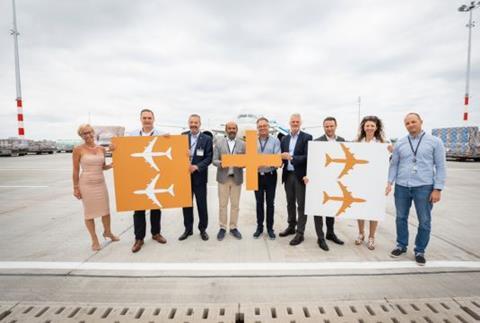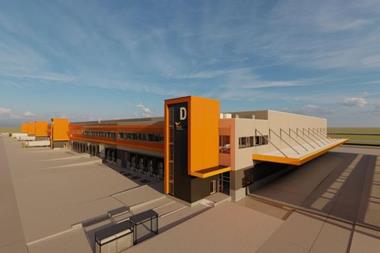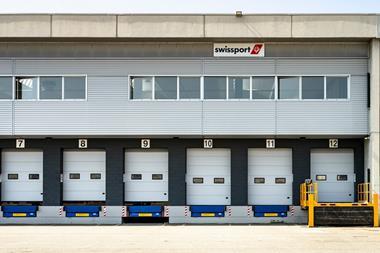
Work has been completed on an extension to the apron at Budapest Airport's Cargo City as it looks to cater for growing cargo demand.
The project, which is part of its BUD Cargo City development, cost around €10m and will double the dedicated cargo apron.
It will enable the airport to handle up to four Code F (B747F) aircraft with nose-loading capabilities simultaneously.
The airport recorded a 9% increase in cargo volumes over the first five months of the year to 107,000 tons.
René Droese, chief development officer and deputy chief executive for Budapest Airport said: “Since the opening of the BUD Cargo City in 2020, each year Budapest Airport has handled record cargo volumes, and the year-to-date cargo volume till the end of July 2023 was 40% more than during the same period of 2019, signaling a significant growth potential for our partners and the Hungarian economy as a whole.
“Completing the apron extension is the next important milestone in our overall cargo expansion plan, which will increase the airport’s annual cargo capacity to 300,000 tons per year by the end of 2023, ensuring that Hungary continues to lead the way within Central and Eastern Europe as a competitive cargo hub.”
He added: "As a long-term project, preparations for the second phase of the BUD Cargo City logistics complex are already underway.
"We are seeing several cargo projects on the market and high interest for the cargo service options provided at Budapest Airport. Consequently, we need to ensure our infrastructure is in line with demand.”
Following the completion of the apron expansion, the next steps include an additional 6,500 sq m handling warehouse extension, with offices and other supporting infrastructure, adding to the existing cargo handling capabilities.
Qatar Airways Cargo was the first carrier to use the new apron guest.
Robertino Veltman, vice president Europe, Qatar Airways Cargo, said: “I would like to congratulate Budapest Airport on the inauguration of the two new freighter stands. Currently, operating three Boeing 777 freighters and seven belly-hold flights each week, we are glad to support the Hungarian businesses with dedicated cargo capacity."















